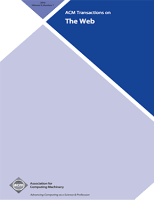
ACM Transactions on the Web
Scope & Guideline
Exploring Cutting-Edge Applications in Web Science
Introduction
Aims and Scopes
- Web Security and Privacy:
Research on methods to protect user data, combat online threats, and ensure privacy in web applications. - Graph-Based Learning and Analysis:
Utilization of graph theory and machine learning techniques to analyze web data, including social networks and recommendation systems. - User Behavior and Interaction Modeling:
Studies that explore how users interact with web technologies, including their behavior in social media and e-commerce environments. - Recommendation Systems and Personalization:
Development of algorithms and models that enhance user experience through personalized content delivery and recommendations. - Data Mining and Information Retrieval:
Techniques for extracting valuable information from web data, improving search engines, and enhancing data accessibility. - Web Content Management and Semantic Web:
Research into frameworks and technologies that improve the management of web content and facilitate semantic understanding of web data.
Trending and Emerging
- Artificial Intelligence and Machine Learning in Web Applications:
An increasing focus on applying AI and ML techniques for personalized recommendations, user behavior prediction, and automated content moderation. - Dynamic and Interactive Web Experiences:
Research is trending towards enhancing user engagement through dynamic content and interactive elements, especially in social media and e-commerce. - Privacy and Ethical Considerations in Web Technologies:
A growing emphasis on understanding user privacy, ethical data usage, and the implications of web technologies on society. - Multimodal Data Integration:
Emerging studies are exploring the integration of various data types (text, images, social signals) to enhance web applications and user experience. - Behavioral Analysis and Predictive Modeling:
Increased research on analyzing user behavior to predict actions and improve interaction outcomes, particularly in social networks and e-commerce.
Declining or Waning
- Traditional Web Development Techniques:
Research centered on basic web development practices has diminished, possibly due to the rise of more sophisticated frameworks and technologies. - Static Content Management Systems:
There is a decreasing emphasis on static content management, as dynamic and interactive web applications gain prominence. - Basic Search Engine Optimization (SEO):
As search engine algorithms evolve, traditional SEO techniques are becoming less relevant, leading to a decline in related research. - General User Interface Design:
Research focusing solely on user interface design principles without integration of advanced analytics or user behavior studies is waning. - Legacy Web Technologies:
Studies that focus on older web technologies are less common, as the field moves towards innovative and modern solutions.
Similar Journals
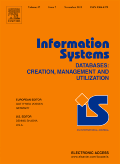
INFORMATION SYSTEMS
Elevating knowledge in the realm of Information Systems.INFORMATION SYSTEMS is a premier journal published by PERGAMON-ELSEVIER SCIENCE LTD, dedicated to advancing the fields of Information Systems, Hardware and Architecture, and Software. With its ISSN 0306-4379 and E-ISSN 1873-6076, this prestigious journal has established a significant presence in the academic community since its inception in 1975, paving the way for innovative research that continues through 2025. Ranked within the Q1 quartile across its core categories, INFORMATION SYSTEMS holds a notable position, with Scopus rankings including #28 in Computer Science - Hardware and Architecture and #64 in Software, both in the 84th percentile. Although it currently does not offer open access, the journal thrives as a vital resource for researchers, professionals, and students, fostering an environment where cutting-edge studies and industry applications converge. Housed in the United Kingdom, at The Boulevard, Langford Lane, Kidlington, Oxford OX5 1GB, England, this journal highlights its commitment to driving scholarly advancements and supporting the evolution of information technologies.

KNOWLEDGE AND INFORMATION SYSTEMS
Bridging Theory and Practice in Information SystemsKNOWLEDGE AND INFORMATION SYSTEMS, published by SPRINGER LONDON LTD, is a distinguished journal in the field of information systems, artificial intelligence, and human-computer interaction. With its ISSN 0219-1377 and E-ISSN 0219-3116, this journal has built a robust reputation since its inception, featuring a convergence of valuable research from 2005 through 2024. Catering to a diverse academic audience, it is classified among the leading journals in its category, proudly holding a Q1 ranking in Information Systems and Q2 rankings in multiple other domains. The journal aims to publish cutting-edge research that not only advances theoretical understanding but also provides practical applications within these rapidly evolving fields. Although it is not an Open Access journal, subscribers can access a wealth of knowledge critical for researchers, practitioners, and students looking to enhance their expertise. With a 2023 Scopus rank placing it within the 66th percentile for Information Systems, KNOWLEDGE AND INFORMATION SYSTEMS is an invaluable resource for those committed to pushing the frontiers of knowledge in technology and information science.

International Journal on Semantic Web and Information Systems
Elevating Standards in Semantic Web Scholarship.International Journal on Semantic Web and Information Systems, published by IGI Global, stands as a premier outlet for research in the realm of Semantic Web technologies and information systems. With a commitment to advancing knowledge and innovation, the journal is recognized for its influential contributions, evident from its prestigious Q1 rankings in both Computer Networks and Communications and Information Systems categories as of 2023. Catering to the high demands of the academic community, the journal provides a platform for interdisciplinary dialogue, showcasing cutting-edge research, methodologies, and applications that underpin the evolving landscape of information systems. Researchers and professionals can stay informed about the latest trends, best practices, and transformative technologies shaping the Semantic Web. Although it does not offer open access, the journal maintains rigorous peer-review standards to ensure quality and relevance, making it an essential resource for anyone dedicated to pushing the boundaries of knowledge in this dynamic field.

Future Internet
Unlocking the Future of Internet TechnologiesFuture Internet is a leading open-access journal published by MDPI, dedicated to advancing the field of Internet technologies and communication networks. Since its inception in 2009, the journal has provided a platform for rigorous research and innovative ideas in the context of the rapidly evolving digital landscape. Based in Switzerland, it has established itself as a prominent publication, earning a commendable Q2 ranking in the category of Computer Networks and Communications for 2023. With a Scopus ranking of #87/395 and a notable 78th percentile, Future Internet fosters interdisciplinary collaboration, making valuable contributions to the understanding of Internet systems, protocols, and applications. Researchers, professionals, and students alike will find a wealth of insightful articles addressing both theoretical foundations and practical implementations. The open-access format ensures that all readers have immediate and unrestricted access to high-quality research, facilitating knowledge dissemination and informed decision-making in academia and industry alike.
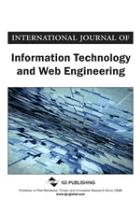
International Journal of Information Technology and Web Engineering
Connecting Academia with Practical InsightsInternational Journal of Information Technology and Web Engineering, published by IGI GLOBAL, is a pivotal platform for the dissemination of cutting-edge research in the fields of information technology and web engineering. With its ISSN 1554-1045 and E-ISSN 1554-1053, this journal has been effectively contributing to the academic landscape since its inception in 2006, aiming to bridge theoretical frameworks and practical applications in an increasingly digital world. As a recognized Q3 journal in the realm of Computer Science (miscellaneous), it ranks 122 out of 232 in Scopus' classification, positioning it amidst the active discussions and developments within the IT and web engineering communities. The journal not only serves as an invaluable resource for researchers and educators but also encourages students and practitioners to explore innovative methodologies and technologies that shape the future of the digital landscape. Although it is not currently an open-access journal, its contributions are indispensable for advancing knowledge and fostering collaboration within the global research community.

DESIDOC Journal of Library & Information Technology
Transforming Information Landscapes through Scholarly ResearchDESIDOC Journal of Library & Information Technology, published by the Defence Scientific Information Documentation Centre, is a pivotal scholarly platform in the realm of Library and Information Sciences. The journal, indexed with ISSN 0974-0643 and E-ISSN 0976-4658, has established its reputation with a commendable Q3 category ranking in the latest Scopus quartiles and a notable rank of 113 out of 280 in its field, placing it in the 59th percentile. Engaging a global audience, it disseminates high-quality research insights aimed at advancing the practices and technologies within library and information management. Operating within a converged timeframe from 2012 to 2024, the journal is committed to fostering robust discussions surrounding contemporary issues in the field, making it an invaluable resource for researchers, professionals, and students alike. While currently not offering open access, its content is accessible through institutional subscriptions, reinforcing its significance in the academic community of India and beyond.
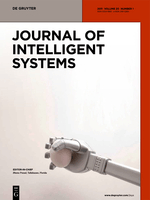
Journal of Intelligent Systems
Unlocking the Future of Artificial IntelligenceThe Journal of Intelligent Systems, published by DE GRUYTER POLAND SP Z O O, is a premier open access journal that has been at the forefront of advancements in the fields of Artificial Intelligence, Information Systems, and Software Engineering since its inception in 1991. With a commitment to disseminating high-quality research, the journal has been recognized in the 2023 category quartiles as Q3 in these critical areas, reflecting its relevance and impact in the academic community. The journal serves as a vital platform for researchers, professionals, and students interested in the evolving landscape of intelligent systems, offering insights into innovative methodologies and applications. As an open access publication since 2020, it ensures that research is readily available to a global audience, fostering collaboration and engagement within the scientific community. With a Scopus rank in the 65th to 69th percentiles across its categories, The Journal of Intelligent Systems continues to contribute significantly to the discourse on intelligent technologies and their implications for the future.
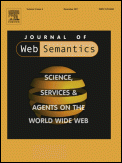
Journal of Web Semantics
Shaping Tomorrow's Web: Insights from Leading Scholars.Journal of Web Semantics, published by ELSEVIER, stands at the forefront of interdisciplinary research in the realms of Computer Networks and Communications, Human-Computer Interaction, and Software Engineering. With an impressive impact on the academic landscape, this journal holds a significant Q2 quartile ranking in multiple fields as of 2023, reflecting its strategic positioning within the top tier of scientific journals. As a valuable resource for researchers, professionals, and students, it provides a platform for innovative articles addressing contemporary challenges and advancements in web semantics—a crucial aspect of improving web usability and data integration. Operating with a Scopus Rank that places it in the commendable 71st, 67th, and 60th percentiles across its respective categories, the journal facilitates access to high-quality research findings, fostering a vibrant community of scholars dedicated to enhancing the synergy between technology and human interaction. The Journal of Web Semantics continues to evolve, marking its significance from 2003 to 2024 and offering a vital space for discourse that shapes the future of web technologies.

KSII Transactions on Internet and Information Systems
Innovating Solutions in Internet Technology and Information Systems.KSII Transactions on Internet and Information Systems is a leading academic journal dedicated to advancing the fields of Internet technology and information systems. Published by the KSII-Kor Soc Internet Information, this journal has established itself as a significant contributor to research since its inception in 2007, with a focus on innovative solutions and methodologies in computer networks and communications as well as information systems. With a Category Quartile of Q3 in both fields for 2023, it ranks in the 44th percentile among its peers according to Scopus, making it a reputable platform for authors to share their findings. While available in print, the journal also promotes open access, ensuring broad dissemination of research findings. The editorial team is committed to maintaining high scholarly standards and relevance, inviting contributions from researchers, professionals, and students eager to push the boundaries of knowledge in today's rapidly evolving digital landscape. For those engaged in or studying these dynamic fields, the KSII Transactions on Internet and Information Systems remains an invaluable resource for cutting-edge research.

OECOLOGIA
Connecting Researchers to Transform Ecological UnderstandingOECOLOGIA is a prestigious journal dedicated to the interdisciplinary fields of ecology, evolution, behavior, and systematics, published by Springer. Established in 1968, this journal has consistently contributed to the scientific community, maintaining a strong impact factor reflected in its Q1 ranking within its category for 2023, and an impressive 79th percentile among 721 journals in the Scopus rank for Agricultural and Biological Sciences. With a commitment to advancing ecological knowledge and fostering innovative research, OECOLOGIA serves as a vital platform for researchers, professionals, and students exploring complex ecological dynamics and evolutionary processes. Although it does not offer open access, the journal remains dedicated to high-quality, peer-reviewed publications that inspire and inform the next generation of ecological science. For those interested in the latest trends and significant findings in biology and ecology, OECOLOGIA is an essential resource that continues to shape the discourse and understanding in these critical fields.